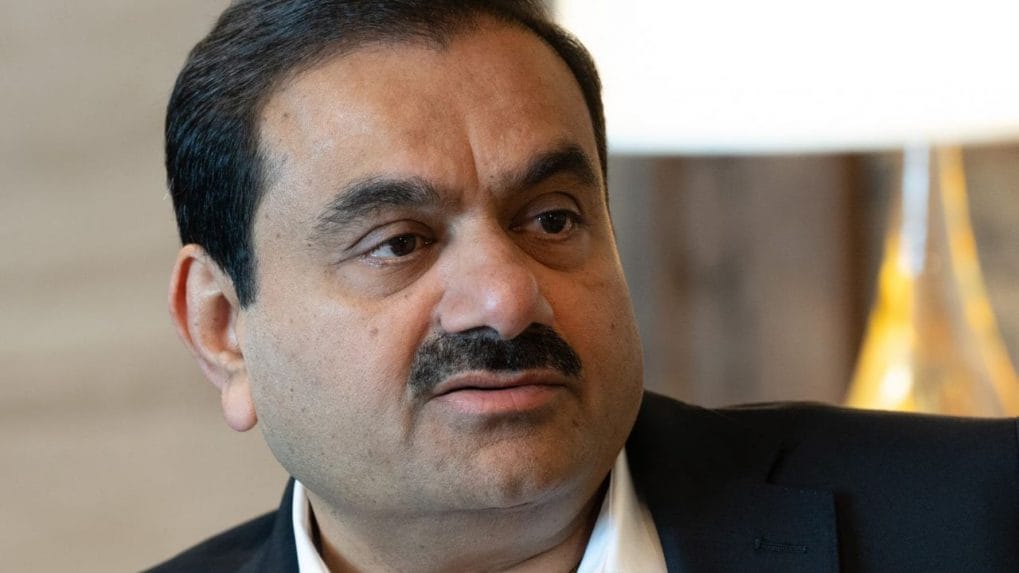Adani warns of AI-led power shift, calls tech self-reliance India’s ‘Second Freedom Struggle’
Speaking at IIT Kharagpur’s Platinum Jubilee, the Adani Group chairman urged engineers to prepare for battles fought in ‘server farms, not trenches’ and announced the world’s largest renewable energy park in Gujarat.
ADVERTISEMENT
Gautam Adani, Chairman of the Adani Group, on August 18 urged India’s engineers to lead what he termed the nation’s “second freedom struggle”-this time for technological self-reliance.
Speaking at the platinum jubilee celebrations of the Indian Institute of Technology (IIT) Kharagpur, Adani warned that the next phase of global competition will be determined by control over algorithms, data, and intellectual property.
Read more: Gautam Adani calls for action on India's spinal epidemic with Rs 60,000 crore healthcare plan
“The wars we fight today are often invisible. They are fought in server farms, not in trenches. The weapons are algorithms, not guns. The empires are not built on land, but in data centres,” Adani told a packed auditorium of students.
He cautioned that countries controlling intellectual property would eventually control the future, calling for urgent action by India’s government, academia, and corporate sector to prepare for this new era.
Adani pointed to India’s continued dependence on technology imports, noting that the country sources 90% of its chips and 85% of its oil from abroad. Framing self-reliance in this sector as a national priority, he said.
Four Principles for a ‘Greater Bharat’
Outlining his vision for national progress, Adani proposed four guiding principles that he said would help build a “greater Bharat”:
- Treating ideas as weapons
- Building for India first
- Fortifying technology and infrastructure foundations
- Uniting academia, government, and industry
“These principles form the cornerstone of India’s path to technological self-reliance and global competitiveness,” he said.
AI, Innovation, and the Pace of Change
Adani also highlighted the rapid pace of innovation in artificial intelligence, warning that global power equations between nations and corporations would be recast by its evolution. “The speed of innovation in AI and related technologies is so rapid that today’s advantages could disappear overnight,” he noted.
He urged policymakers and industry leaders alike to treat technological sovereignty as critical to national sovereignty.
World’s Largest Renewable Energy Park in Gujarat
In one of the biggest announcements of the session, Adani revealed that the Adani Group is constructing the world’s largest renewable energy park in Khavda, in Gujarat’s Kutch district. Spread over 500 square kilometers, the project will have a massive 30 GW capacity.
He expressed confidence that within five years India would lead the world in renewable energy generation and become the global leader in the sector by 2030.
Alongside the energy park, Adani launched the Adani-IIT Platinum Jubilee Change Makers Fellowship, which will support projects in renewable energy, logistics, and smart mobility. The initiative is aimed at fostering innovation among India’s young engineers in areas critical to sustainable growth and technological advancement.
Scaling with Policy Alignment
Reflecting on his company’s growth, Adani said the Adani Group had achieved scale by aligning with government policies, making it India’s largest infrastructure company. Ambitious projects like the Khavda energy park, he said, underline the group’s long-term commitment to strengthening India’s technological and infrastructural foundations.
By framing technological independence as a freedom struggle, Adani has elevated the debate around innovation and self-sufficiency to a matter of national interest, potentially setting the stage for greater collaboration between government, academia, and industry in building home-grown solutions for the future.

